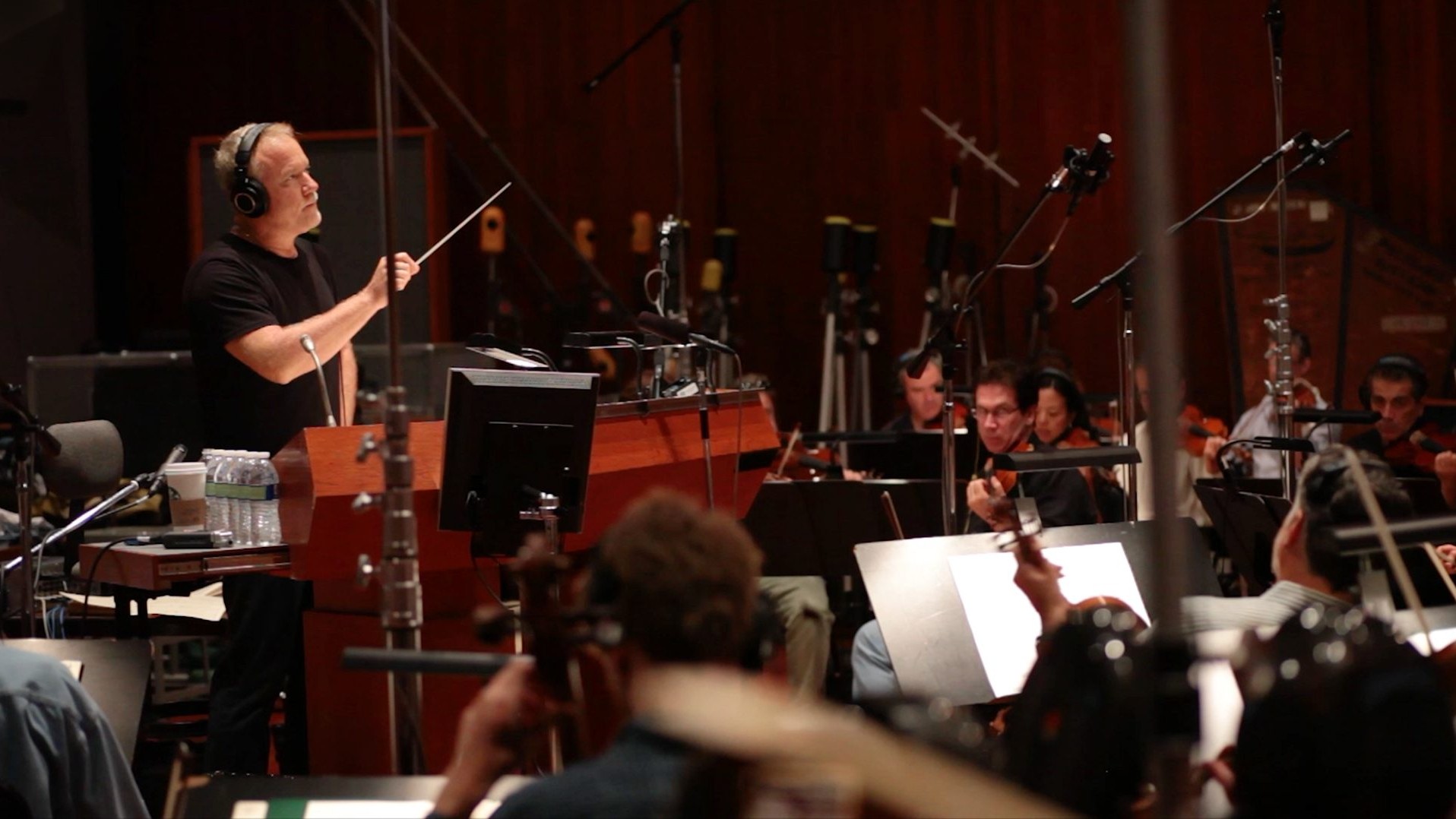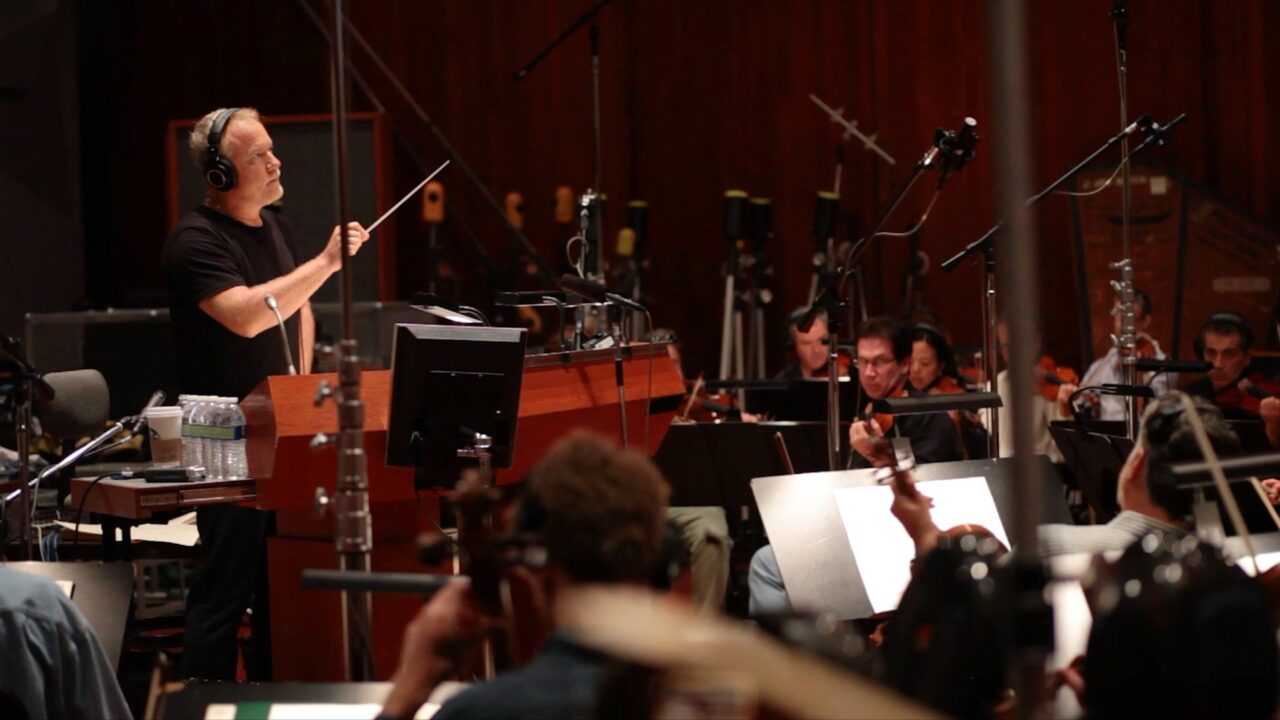For most of us, the personal connections we experience and the emotions evoked by a film can be greatly attributed to its musical score. Iconic films that are dear to our hearts are so memorable not necessarily for its acting or the storyline, but because of their music.
In Matt Schrader’s 2016 film Score: A Film Music Documentary, we go behind the scenes to gain a deeper understanding of the methods, practices, and the talented composers that elevate a music-less film into a timeless work of art.
The documentary is organized into an interconnecting mix of interviews, archive footage, and performances, allowing the production and implementation of film scores to be seen from all sides of the film industry. Beginning with a montage of various acclaimed composers, it is determined how a film’s score is the lifeblood of a movie, enhancing the film to a whole new transcendent level and reaching the audience in a way not possible solely through film alone. Although music scores can sometimes be overlooked in comparison to cinematography or action, the beginning sequences help to remind the viewer that the music is a crucial part of the narrative and the power it has over the audience.
Although not adhering to a strict interview pattern, Score explores film music by tracing the musical history of film and following its evolution from its inception up until now. It is acknowledged that music has always been part of cinema with silent films using a piano as a way to cover up the sound of the projector, or theater organs to help bring silent films to life. Eventually, the birth of a full orchestra occurred when Max Steiner shattered what audiences knew about film music in the 1933 film King Kong. This orchestral score is credited with completely revolutionizing how music was used in films, starting the development and use of film scores into what they have become today.
A film’s score is the lifeblood of a movie, enhancing the film to a whole new transcendent level, reaching the audience in a way not possible solely through film.
As the documentary moves forward, it provides a look into the rigorous work and extensive process necessary to turn these scores into an effective component of a film. The entire timeline of the production for a musical score is laid out, with the assorted jobs from the composer to the mixer explained. This goes from composers writing music on a blank sheet of paper, to sound mixing, to working with the director to put the right music in the right place.
Interviews with composers such as Hans Zimmer and Elliot Goldenthal aid in explaining the enormous amount of pressure that comes out of this process, whether it is from studio deadlines or for a fear of lack of creativity. It is explained that there is so much stress because no matter how good a movie is without the music if the music doesn’t work, all of the hard work will have been for nothing.
Although segments of Score focus on the struggles and hardships surrounding film composers and their music, the overall theme of the documentary is that it is all entirely worth it. The passion and dedication to music exhibited by the composers are enlightening and inspiring, while at the same time giving credit to their work that is often unnoticed. There is a clear sense of comradery amongst this group of musicians, and an appreciation from other film administrators for the work that they do, as well as an acknowledgment of the critical role they play in telling a story.
Overall, Score does an excellent job of giving the audience a look into a process of moviemaking that can sometimes be overlooked. It is an informative and illuminating work that gives the audience a sense of understanding an essentially impalpable experience. The combination of interviews matched with real-life orchestral performances bring the classic movie scores we love and know to life– showing the underground process and clarifying its importance in shaping a film. A must see for anyone interested in music or who wants to understand everything that goes into making movies come to life.
Score: A Film Music Documentary is not rated. 93 minutes. Now playing at The Quad Cinema in New York, opening next Friday at the ArcLight Sherman Oaks.
Jackson Sawa
Jackson is a recent graduate of CSU Chico and has a deep love for music and art. If you can't get a hold of him, it's nothing personal, he tends to keep his phone on silent.


